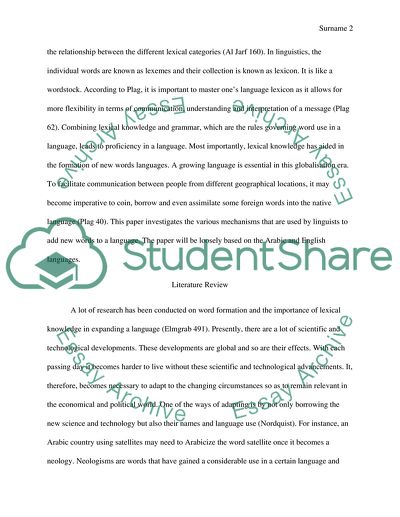Cite this document
(Lexicon: The Methods of Adding New Words to a Language Research Paper, n.d.)
Lexicon: The Methods of Adding New Words to a Language Research Paper. Retrieved from https://studentshare.org/english/1828897-lexicon-the-methods-of-adding-new-words-to-a-language-example-arabic-and-english
Lexicon: The Methods of Adding New Words to a Language Research Paper. Retrieved from https://studentshare.org/english/1828897-lexicon-the-methods-of-adding-new-words-to-a-language-example-arabic-and-english
(Lexicon: The Methods of Adding New Words to a Language Research Paper)
Lexicon: The Methods of Adding New Words to a Language Research Paper. https://studentshare.org/english/1828897-lexicon-the-methods-of-adding-new-words-to-a-language-example-arabic-and-english.
Lexicon: The Methods of Adding New Words to a Language Research Paper. https://studentshare.org/english/1828897-lexicon-the-methods-of-adding-new-words-to-a-language-example-arabic-and-english.
“Lexicon: The Methods of Adding New Words to a Language Research Paper”, n.d. https://studentshare.org/english/1828897-lexicon-the-methods-of-adding-new-words-to-a-language-example-arabic-and-english.


